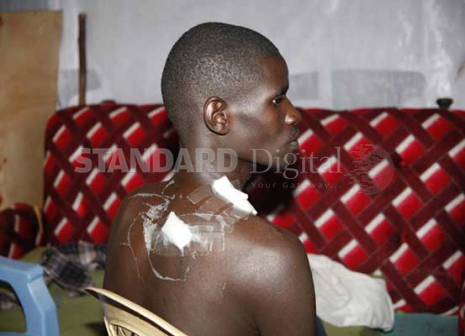
After months of political push and pull that resulted in death and suffering across the political divide, Kenyans are slowly picking up the pieces. As the political class moves chess pieces hoping to check mate their rivals with every play, those who bore the brunt of the chaos that momentarily rocked parts of the country painfully trudge along.
The injured are nursing wounds, with some admitted to hospital days after the swearing in of President Uhuru Kenyatta. Reports of women dragged from their houses and raped cut through an uneasy calm that has slowly descended in areas that witnessed the worst of the violence. Uncertainty still looms especially in slums. “We wonder how people will recover from the things they witnessed here. It was scary,” says Joseph Ochieng’, chairman of Mathare 4A vigilante group in Nairobi.